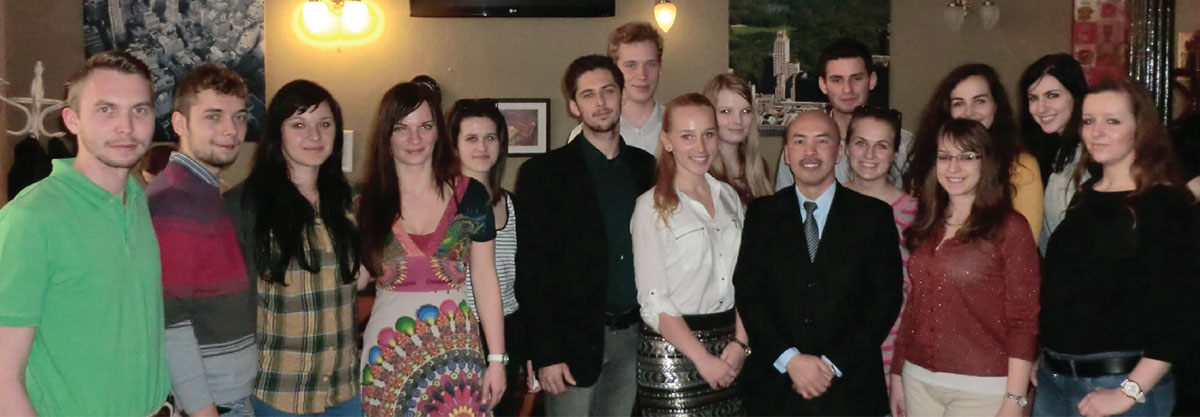Refugee to Diplomat: A Journey
Reflections
BY TONY HORNIK-TRAN

RSO Tony Hornik-Tran meets with law students during an official trip in Slovakia.
Courtesy Tony Hornik-Tran
I was born in Tuyhoa, a small city in Vietnam. My father was a high school principal and my mother was a home economics teacher. My parents gathered their life savings and paid for my brother and me to escape to a free country.
Before we left, my father said: “Education will be the key to your future success. Use it to help yourself and others.”
In May 1982, we set out from Vietnam on a small fishing boat with 37 other people. After five days and six nights at sea, we finally made it to a small town named Mariveles, at the southern tip of the Bataan Peninsula in the Philippines.
We were transported to the Vietnamese Refugee Asylum Camp in Palawan, and later transferred to another camp called the Philippine Refugee Processing Center.
During 11 months at the camps, I met numerous international organization workers from all over the world. I was deeply touched by their generosity, commitment and dedication. They were a great help to my brother and me. I promised myself that someday I would come back to help other refugees in need as they had helped me.
In America, I was placed with an adoptive family in Madison, Wisconsin, for a few years. This family took me in with unconditional love, treating me as if I were their own son and facilitating the transition to my new country.
I had promised my father that I would educate myself, so I attended the University of Wisconsin-Madison. I knew what I wanted to do, but there were many obstacles along the way, especially since English was my second language. But I knew that I could accomplish anything to which I set my mind.
I graduated with a bachelor’s degree in social welfare and criminal justice in 1990, and was recruited by the International Catholic Migration Commission/Joint Voluntary Agency, an organization that assists uprooted people, refugees and migrants worldwide. I was assigned to one of the refugee camps in the Philippines where I had lived eight years earlier.
As a caseworker, my duties included counseling and crisis intervention services for refugees who had a variety of psychosocial problems. These Southeast Asian and Amerasian people had suddenly been torn away from all that was dear and familiar to them—homes, jobs, personal dignity and place in the world. I knew how they felt!
Assisting them was one of the most rewarding experiences of my life—especially since I met my wife there—and I extended my contract to three years. I encouraged people to follow their hearts, as I did, and always remember the importance of helping your fellow man.
In 1994, I returned to the United States, settling in San José, California, eager to continue working with the Vietnamese community. I also spent six years with the San José Police Department. Eventually, I joined the State Department’s Bureau of Diplomatic Security as a Special Agent in 2002.
As a former refugee from Vietnam, serving in the United States Foreign Service for 12 years has been a humbling experience and a privilege. If it were not for America, I would never have had a chance to do what I do today.
So I would like to conclude my story with my favorite line in a famous speech by President John F. Kennedy: “My fellow Americans: Ask not what your country can do for you—ask what you can do for your country.”

